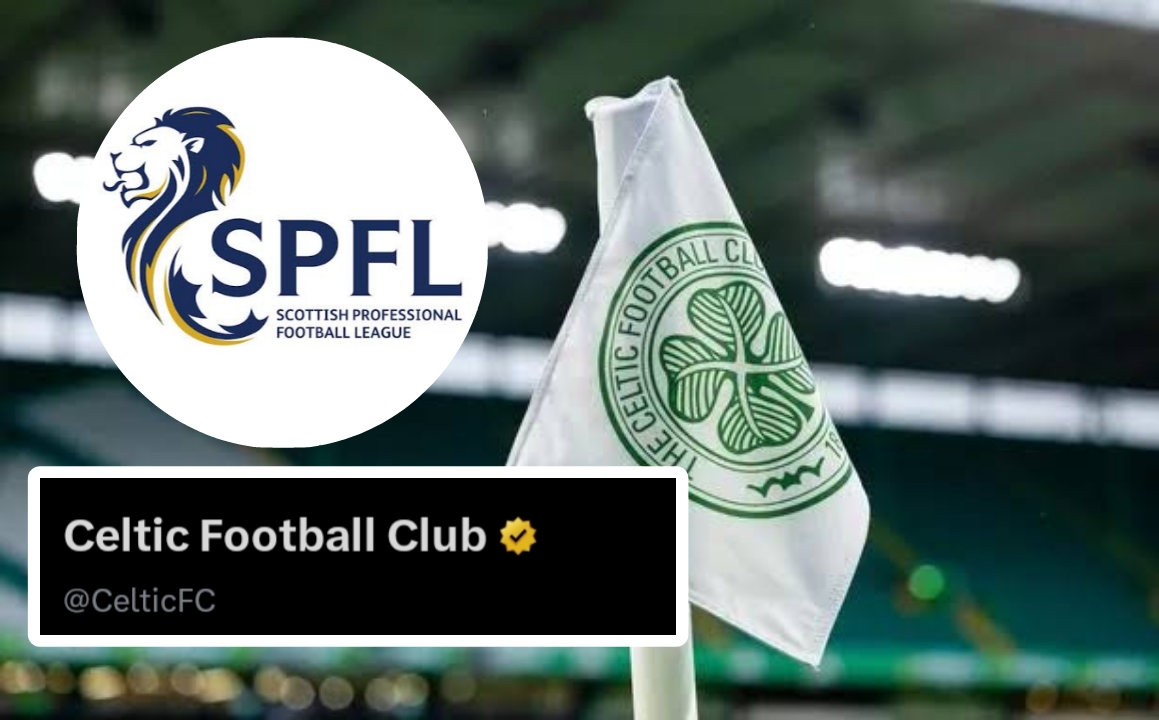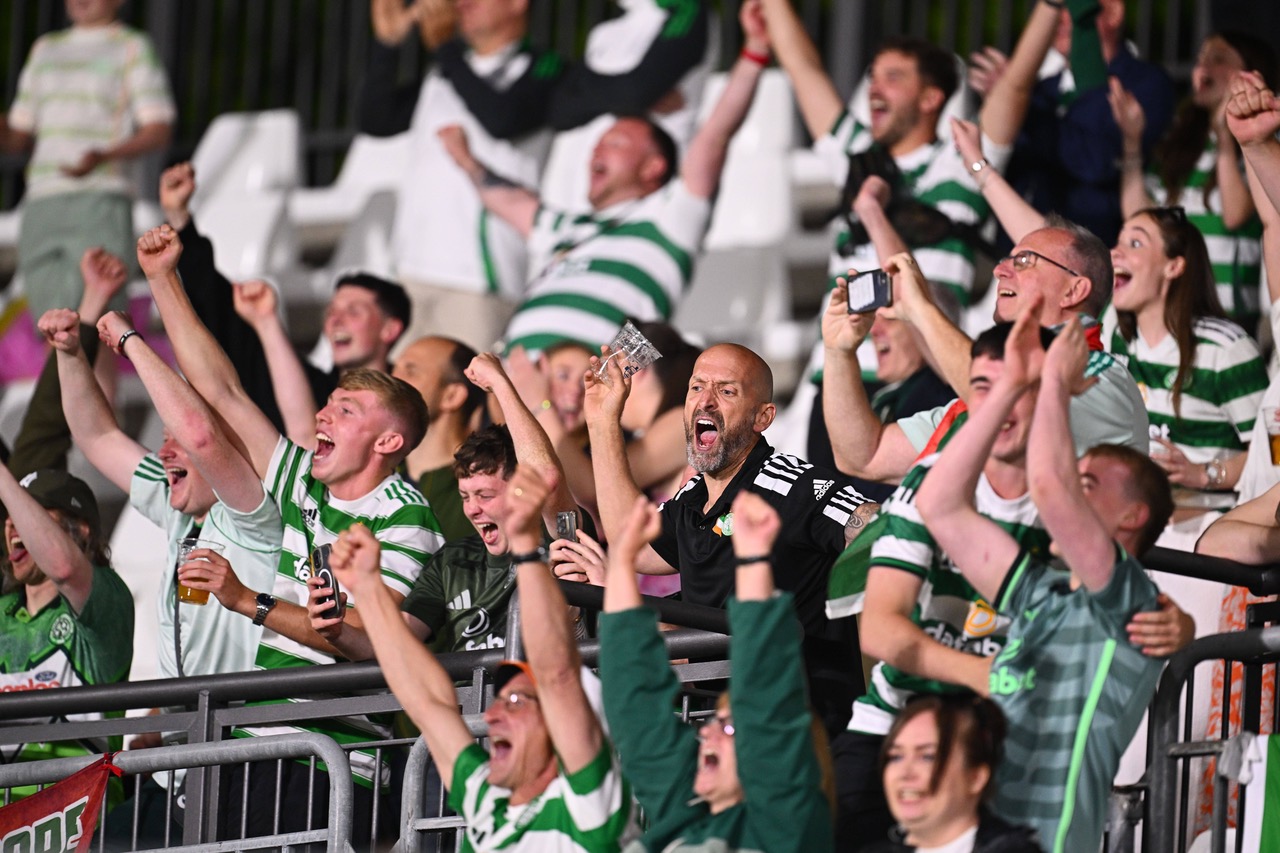SPFL MAKE DECISION ON CHARGING CELTIC OVER CONTROVERSIAL SOCIAL MEDIA POST MADE AFTER RANGERS WIN
The Scottish Professional Football League (SPFL) has moved to examine — and, according to several media reports and fan threads, to charge — Celtic Football Club over a controversial social-media post published in the immediate aftermath of their recent win against Rangers. The action has reignited debate about where responsibility lies for provocative online content, how disciplinary rules are applied in high-profile Old Firm incidents, and what sanctions the league is prepared to impose in a rivalry that already generates intense scrutiny from police, regulators and the public.
Thank you for reading this post, don't forget to subscribe!What happened (the facts, as reported)
Celtic recorded a notable victory over Rangers in the Premier Sports Cup semi-final, a result widely reported in match coverage and visible across social feeds in the hours after the game. Videos and highlights of the match circulated rapidly online.
Shortly after the final whistle, a piece of content appearing on or connected to Celtic-related accounts — described by supporters and opponents on Twitter/X, Instagram and fan forums as provocative and gloating — triggered an immediate backlash from sections of the public and rival supporters. Against the highly charged backdrop of Old Firm rivalry, social posts like this are often amplified quickly and dissected by the media. Where posts are judged to undermine public order, encourage unsporting behaviour, or breach league standards, the SPFL has regulatory tools to respond.
The SPFL’s remit and precedent
The SPFL’s Rulebook and disciplinary framework give the league power to investigate clubs for conduct — including behaviour in official communications and matchday contexts — that it deems contrary to its rules or damaging to the game’s reputation. Recent years have shown the regulator willing to act in high-profile cases: Celtic (and other clubs) have faced charges previously for fan-related incidents such as the use of pyrotechnics or breaches of matchday regulations. Those earlier disciplinary matters set a procedural precedent for how the SPFL investigates and, if necessary, charges clubs.
What the reports say the SPFL has done
Local news outlets and fan sites consolidated on social media claim that the SPFL has issued a notice of complaint to Celtic, citing the post as the subject of disciplinary consideration. Those reports link the decision to the league’s desire to clamp down on inflammatory content that risks inflaming tensions between supporters after a volatile fixture. At the time of writing, major national outlets are covering the fallout and the club has issued terse responses in the past to SPFL disciplinary action — a pattern that suggests a likely exchange of formal correspondence between regulator and club.
Important verification note: while multiple fan sites, social threads and some outlets are reporting that the SPFL has acted, there is no single, definitive public SPFL press release located by this analysis that quotes the full text of the charge or the regulator’s final decision at the time of publication. Where coverage draws on unnamed sources or club statements, readers should treat those accounts as evolving.
Celtic’s likely position and typical club responses
Clubs subject to SPFL notices typically respond along three lines: (1) acceptance of responsibility where appropriate and a pledge to cooperate with the regulator; (2) rejection of the allegations and a promise to contest procedural or factual elements; or (3) a defence that places blame on supporters, third-party accounts or misinterpretation. Celtic’s past public statements following disciplinary scrutiny have combined condemnation of specific fan behaviour (for example pyrotechnics) with assurances of engagement to prevent recurrence — a posture that balances admitting issues while protecting the club’s broader reputation. Expect Celtic to lodge a formal response and, if charged, to use the SPFL appeals channels set out in its rules.
How the SPFL sanction process works (brief)
If the SPFL issues a notice of complaint or charge, the process commonly follows these steps: notification to the club; an opportunity to respond in writing; a hearing (if required); and either a ruling or an agreed settlement. Penalties can range from fines and warnings to matchday sanctions (ticket deductions or partial stadium closure), depending on severity and the club’s disciplinary history. The regulator will weigh intent, impact and precedent when deciding an appropriate sanction. The SPFL’s rules and prior rulings on fan conduct and matchday incidents provide the legal scaffolding for such decisions.
Reaction on social media and among stakeholders
As with all Old Firm flash-points, opinions have polarised online: some Rangers supporters and neutral observers have called for strict punishment and public rebuke; some Celtic fans defend the club, arguing the post is playful banter taken out of context; neutral commentators warn that punitive overreach risks inflaming tensions further. Local policing and safety authorities will also be watching closely — violent or disorderly incidents connected to rivalry fixtures have previously drawn police interventions and public warnings.
What this means for governance and the game
The episode highlights several broader issues for Scottish football governance:
Platform responsibility: clubs increasingly act as media outlets; what they publish is judged under the same disciplinary lens as on-pitch or matchday conduct.
Consistency and precedent: supporters expect the SPFL to apply rules evenly across clubs; perceived inconsistency (real or alleged) risks eroding confidence in regulators.
Public order vs free expression: regulators must balance preserving public safety with not policing harmless fan banter. The Old Firm context makes that balance especially delicate.
Possible outcomes and timeline
If the SPFL proceeds with formal charges, outcomes could include a fine, a written warning, minor matchday restrictions (e.g., ticket deductions) or, in rarer cases, stricter sanctions for repeat or severe breaches. The league’s rules provide an appeals mechanism; similar cases in recent seasons show that resolution typically takes days to weeks depending on the complexity and whether an independent tribunal is involved. Readers should check the SPFL’s official communications for the definitive ruling.
Bottom line
The SPFL’s involvement underscores how rapidly social-media content now intersects with sporting governance. Whether the regulator’s action becomes headline-making punishment or a routine disciplinary exchange will depend on the SPFL’s findings, Celtic’s response, and how social and policing authorities assess any public-safety risk. For followers of Scottish football, the episode is a reminder that in the digital era every post — official or unofficial — can have regulatory consequences.








Post Comment